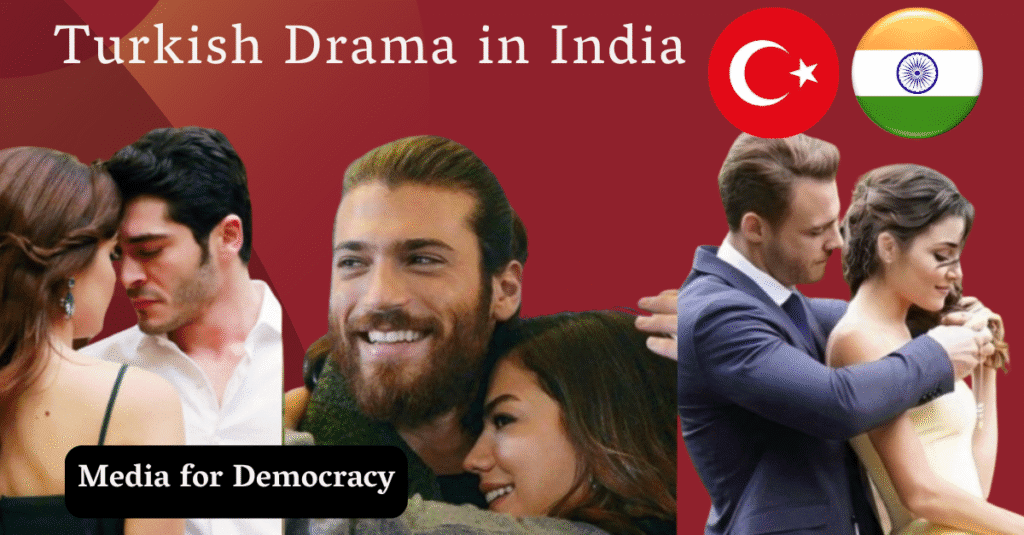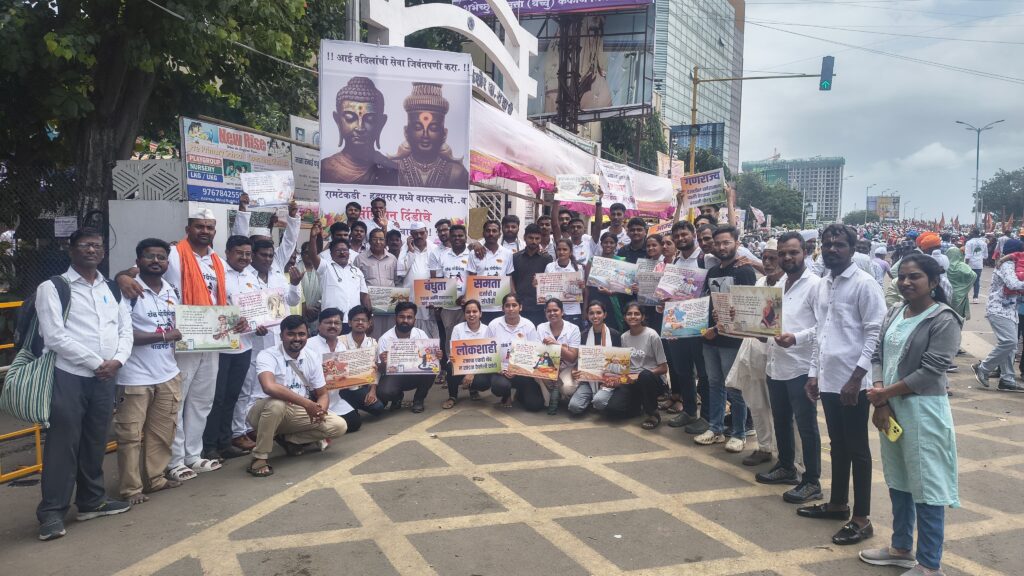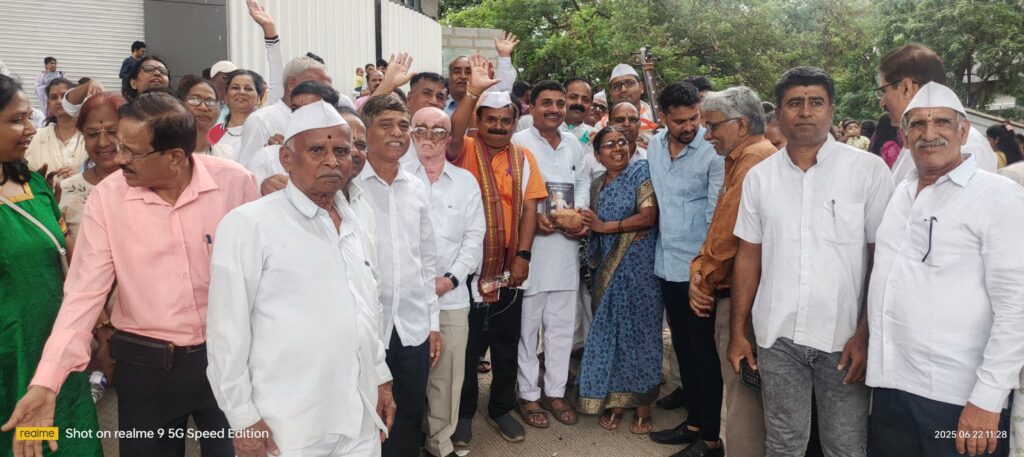Anuradha Tripathi | 18 July 2025
A few months ago, I was just another Indian viewer watching short clips of random shows during lunch breaks and scrolling through late-night episodes on my phone. I never expected that a drama from another continent would pull me in so deeply. Somewhere between Endless Love and Fatmagül’ün Suçu Ne?, I wasn’t just entertained — I was emotionally, intellectually, and even culturally drawn in. What began as a simple academic inquiry became a personal exploration into how Turkish dramas have quietly, but powerfully, won the hearts of Indian audiences.
Turkish Dramas: More Than Just Entertainment
Turkish dramas don’t shout, they linger. Unlike the often exaggerated melodrama on traditional Indian TV, these shows focus on emotional realism. Conflict unfolds slowly. Characters sit with grief, reflect on their choices, and grow at their own pace. There’s room for silence, for contemplation — something surprisingly rare in mainstream television.
And then there’s the music. Sometimes a soft piano riff or a soaring violin speaks louder than dialogue. These emotional interludes don’t just complement the story — they amplify it. I came across Indian fans who said they rewatched certain scenes just to feel the music again. That’s not casual viewing — that’s emotional investment.
Visually, too, Turkish dramas are stunning. Their cinematography is poetic — from the shores of the Bosphorus to the alleyways of Istanbul’s old quarters. Lighting plays an almost narrative role, shifting between warm hues of intimacy and cool tones of tension. Every frame feels like a painting.
What struck me most, however, was the emotional dignity in the storytelling. Conflict doesn’t devolve into yelling matches. Characters disagree, cry, fall apart, and reconcile — but even in anger, there is restraint. Turkish dramas don’t just show drama — they humanize it.
Love, Strength, and Real Characters
At the heart of these dramas are emotions — raw, complex, and universal. Whether it’s love, betrayal, sacrifice, or familial loyalty, Turkish shows make space for emotional depth. Their male protagonists are often strong, yes — but also vulnerable. Their women are not side characters — they are ambitious, independent, and deeply layered.
That’s part of the allure for Indian viewers. These characters reflect not just who we are, but who we want to be. In a society where stories often confine women to roles of obedience or emotional servitude, Turkish heroines feel like a breath of fresh air — flawed, assertive, unapologetic.
The Shift in Indian Viewership
As I observed, a clear pattern emerged. Indian Gen Z and millennial audiences are turning away from the endless loop of “saas-bahu” tropes. They crave stories with substance, characters who face moral dilemmas, and love stories that don’t need 500 episodes to take shape.
Turkish dramas meet these needs — and then some. With limited episodes, well-constructed arcs, and emotional intelligence, they offer a compelling alternative. The appeal is not just novelty — it’s quality.
Cultural Reflections: A Window and a Mirror
What fascinated me most was how fiction becomes a vehicle for cultural exchange. Turkish dramas don’t just entertain — they immerse. From tea rituals to family dynamics, from honor-based conflict to rituals of mourning and celebration — everything is woven naturally into the story. It’s not cultural education — it’s cultural experience.
Indian viewers don’t just watch Turkish life — they feel part of it. And increasingly, they aspire to it. The elegant interiors, the subtle fashion, the emotionally articulate male leads, and the strong female characters — these elements are quietly reshaping taste and aspiration.
But the brilliance of Turkish dramas lies in their subtlety. They don’t preach ideals. They present possibilities. And in doing so, they offer viewers a mirror: What if I demanded more respect in love? What if I balanced tradition and ambition on my own terms?
OTT and Social Media: The Real Game Changers
Let’s be honest — if it weren’t for MX Player, YouTube, Netflix, and dubbed versions, many of us would never have discovered Turkish dramas. These platforms gave us access. But it was social media that gave these shows life.
Fan edits with Hindi music, meme pages, reels, and subtitled clips made Turkish characters feel oddly familiar. Suddenly, Burak Deniz was being talked about like Shah Rukh Khan. Turkish actors became stars in Indian living rooms — not through TV promotions, but through algorithms and word of mouth.
What It Meant for Me
This journey wasn’t just academic — it was personal. I laughed with Hayat’s chaos, cried with Fatmagül’s pain, and paused more than once to wonder, “Why don’t we have characters like this?”
As a woman, I felt empowered watching Turkish heroines. They weren’t perfect, but they were passionate, vulnerable, and determined. They worked, they loved, they failed — and they kept going. That felt powerful in a way I hadn’t expected.
Studying these shows also taught me about soft power. How entertainment shapes perception. How a series shot in Istanbul can influence what a teenager wears in Indore or what a viewer in Lucknow thinks love should look like. I finally understood what “media is culture in motion” really means.
The Complications: What We Must Watch For
Of course, the picture isn’t all perfect. Critics rightly worry about over-romanticizing another country’s culture. Some fear that Indian viewers admire gender roles in Turkish dramas without understanding the complex social and political context behind them.
And they’re right to a degree. We need media literacy. It’s okay to admire — but not blindly. To be inspired — but also critical.
Are we falling in love with what Turkish dramas are, or what we imagine them to be? What Lies Ahead? Will Turkish dramas replace Indian serials? Unlikely. But they have changed expectations. Viewers now want more — sharper writing, deeper characters, fewer stereotypes. That’s a win for everyone: storytellers, producers, and most importantly, audiences. This trend isn’t a threat to Indian storytelling — it’s a challenge to do better.
Borders Fade, Stories Stay
I began this journey asking, “Why are Turkish dramas so popular in India?” I ended it realizing, “Because stories don’t need passports.”
At a time when borders divide us by politics, religion, and identity, these dramas remind us that some things — love, longing, loss — are beautifully universal. Turkish dramas didn’t just bring us entertainment. They brought us empathy. And for me, that’s the highest purpose a story can serve.
Anuradha Tripathi is a researcher and writer exploring media, emotion, and global storytelling. This op-ed is based on her reflective study on the growing popularity and cultural impact of Turkish dramas in India.



